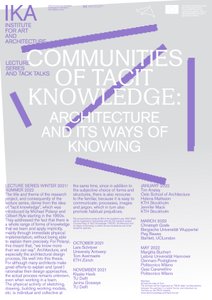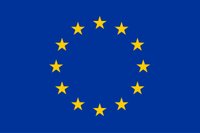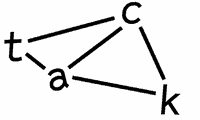Communities of Tacit Knowledge (TACK): Architecture and its Ways of Knowing
The annual lecture series at IKA in the academic year 2021/2022 will be organised in partnership with the EU research project Communities of Tacit Knowledge (TACK): Architecture and its Ways of Knowing, in which we are involved as one of ten academic partners.
The title and theme of the research project, and consequently of the lecture series, derive from the idea of “tacit knowledge”, which was introduced by Michael Polanyi and Gilbert Ryle starting in the 1950s. They addressed the fact that there is a whole range of forms of knowledge that we learn and apply implicitly, mainly through immediate physical implementation, without being able to explain them precisely. For Polanyi, this meant that, “we know more than we can say”. (Riding a bicycle is often cited as an example of “knowing how” rather than “knowing that”.) Architecture, and especially the architectural design process, fits well into this thesis. For although many architects make great efforts to explain and (post-) rationalise their design approaches, the actual process remains unknown, even when working in a team. The physical activity of sketching, drawing, building working models, etc. is individual and collective at the same time, since in addition to the subjective choice of forms and structures, there is also recourse to the familiar, because it is easy to communicate: processes, images and jargon, which in turn also promote habitual prejudices.
It would be easy to say that this implicit knowledge need not become explicit. This attitude has in fact intensified, especially as part of modernist criticism from the 1970s onwards: architecture should be autonomous again, should be art, and should do without rational explanatory patterns. But there are some points that, conversely, should make interest in tacit knowledge grow. First of all, of course, there is the increased use of digitalisation tools in the design process, which promotes rationalisation. If the only physical activity in designing is clicking a mouse, can something like tacit knowledge emerge? And wouldn’t we need it? By whom and how is architecture then explained? This leads to the second point. In times of crisis, construction should critically engage with the public. Enigmatic explanations of beautifully drawn architectural visions are no help. Conversely, an artistic process does not have to be described prosaically. Instead, awareness of and sensitivity to other kinds of knowledge should be communicated in order to be able to promote precisely the creative power of unconventional projects. And furthermore, research into “tacit knowledge” in architecture would at the same time be a contribution to “artistic research” in architecture, a field that is yet obscure and needs to be explored in greater detail, which task the ten doctoral students involved in the research project are taking on in particular.
*The research project is an Innovative Training Network for doctoral students, as part of the Marie Sklodowska-Curie Actions of the European Framework Programme Horizon 2020. The research project has received funding since March 2020 and will run for three years. The project involves ten doctoral students at ten European universities, along with nine architecture firms, three cultural institutions, and an advisory board consisting of six renowned academics in the fields of architecture and urbanism.
Program
-
Vortrag von Tim Ainsworth Anstey und Jennifer Mack
Die jährliche Ringvorlesung am IKA im akademischen Jahr 2021/2022 wird in Partnerschaft mit dem EU-Forschungsprojekt Communities of Tacit Knowledge (TACK) organisiert: Architecture and its Ways of Knowing, an dem wir als einer von zehn akademischen Partnern beteiligt sind.
Vortrag (Englisch)
Livestream via YouTube
Art and Architecture

-
Lecture by Margitta Buchert, Gennaro Postiglione
The annual lecture series at IKA in the academic year 2021/2022 will be organised in partnership with the EU research project Communities of Tacit Knowledge (TACK): Architecture and its Ways of Knowing, in which we are involved as one of ten academic partners.
Lecture
Livestream
Art and Architecture

-
Concepts of authorship in architecture | An examination of the unspoken mechanisms of designing and making buildings
Lecture by Christoph Grafe, Bergische Universität Wuppertal and Peg Rawes, Bartlett, UC London. The lecture is organised as a TACK talk, as a discussion between the partners, and streamed via YouTube on the TACK website. https://youtu.be/Ackv8wXcx7I
Lecture
Online
Art and Architecture

-
Lecture by Tim Anstey, Helena Mattsson, and Jennifer Mack
Lecture by Tim Anstey, Oslo School of Architecture, Helena Mattsson, KTH Stockholm , Jennifer Mack, KTH Stockholm. The annual lecture series at IKA in the academic year 2021/2022 will be organised in partnership with the EU research project Communities of Tacit Knowledge (TACK): Architecture and its Ways of Knowing , in which we are involved as one of ten academic partners.
Lecture
Schillerplatz/ 211a
Art and Architecture

-
Narratives of Tacit Knowledge
Lecture by Klaske Havik, TU Delft and Janina Gosseye, TU Delft. The annual lecture series at IKA in the academic year 2021/2022 will be organised in partnership with the EU research project Communities of Tacit Knowledge (TACK): Architecture and its Ways of Knowing , in which we are involved as one of ten academic partners.
Lecture
Schillerplatz/ 211a
Art and Architecture

-
Architecture and its Tacit Dimensions
Lecture with Lara Schrijver, University Antwerp and Tom Avermaete, ETH Zurich.
The annual lecture series at IKA in the academic year 2021/2022 will be organised in partnership with the EU research project Communities of Tacit Knowledge (TACK): Architecture and its Ways of Knowing , in which we are involved as one of ten academic partners.
Lecture
Schillerplatz/ 211a
Art and Architecture




